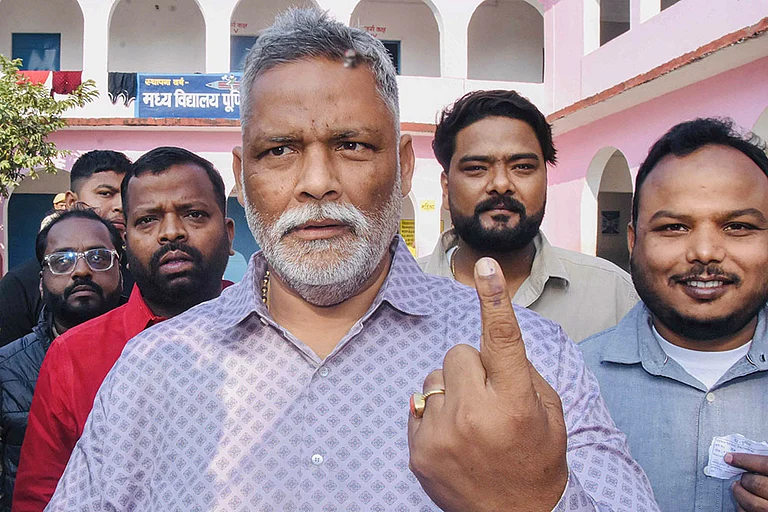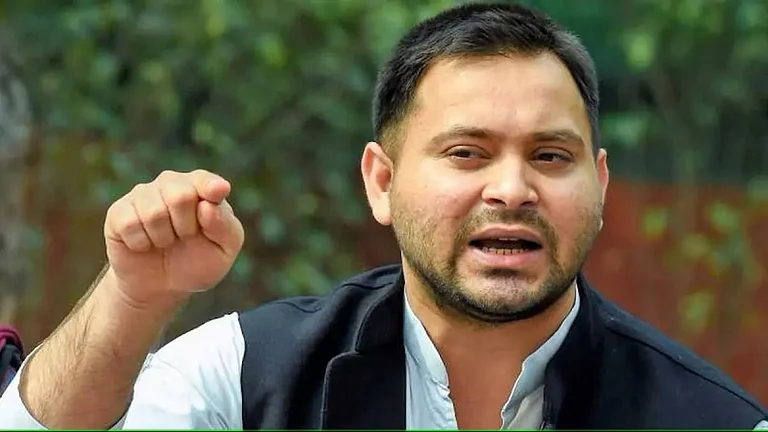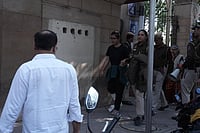
Early gains in reducing domestic violence and alcohol abuse have weakened over time.
Over 9.3 lakh prohibition cases and 1.4 million arrests recorded since 2016
Political parties are promising reviews or rollback ahead of elections, though women still back the ban
Bihar’s liquor ban has entered its tenth year. Despite the previous revenue boom, Nitish Kumar reversed course in 2016. The policy soon ran into trouble, as the illegal liquor trade spread rapidly and demand for alcohol remained high.
As Bihar goes to vote in the first phase on November 6, liquor shops within 3 km of the Bihar-UP border in Deoria will remain shut between November4 and 6, as the Election Commission tightens enforcement for the high-stakes elections.
The policy came into force on April 1, 2016, after Chief Minister Nitish Kumar promised during the 2015 Assembly election campaign to stop alcohol sales to curb domestic violence. The move was widely welcomed by women, who had raised concerns about abuse linked to alcohol.
The ban marked a dramatic reversal. Between 2006 and 2013, licensed liquor shops increased from 3,436 to 5,467, driving excise revenue from about ₹500 crore in 2006 to ₹6,000 crore in 2015. Alcohol had provided around one per cent of GSDP and over 15 per cent of the state’s own tax revenue. After prohibition, excise income fell from ₹3,142 crore in 2015–16 to just ₹30 crore in 2016–17, and remains negligible. PRS Legislative Research notes that most states earn about one per cent of GSDP from excise duty; Bihar now earns virtually nothing.
Early signs were positive. Studies reported improvements in men’s health and significant declines in emotional and sexual violence against women. One estimate suggested the ban prevented 2.4 million cases of frequent drinking, 1.8 million cases of male obesity and 2.1 million cases of intimate partner violence. National Family Health Survey-5 data showed that 83 per cent of married women experienced violence when husbands drank heavily, compared with 34 per cent when they did not.
But the gains faded. With pre-ban consumption at roughly 25 million litres a month, illegal trade flourished. Hooch deaths rose and poorer people were disproportionately arrested. Since 2016, reports have linked 190 deaths to illicit liquor; 9.3 lakh prohibition cases were filed, leading to around 14.3 lakh arrests. Of these, 35 per cent were from OBC groups, 27.1 per cent from SCs and 6.8 per cent from STs.
The political debate is heating up ahead of elections. At a Patna rally on 2 October 2025, Prashant Kishor pledged to end the ban if elected, claiming Bihar loses ₹20,000 crore a year and promising to use future liquor revenue to build schools. The Opposition I.N.D.I.A. bloc has vowed to review prohibition, release jailed Dalit and marginalised people and exempt traditional drinks such as toddy and mahua.
Parties have courted the Pasi community, promising to lift curbs on toddy; RJD’s Tejashwi Yadav recalled that his father, Lalu Prasad, removed toddy tax in the 1990s. NDA ally Chirag Paswan urged that toddy be exempted as a “natural product”.
In October 2023, the Patna High Court criticised the state for failing to enforce the law, reinstated an inspector demoted for alleged negligence, and warned that the ban now sat “on the wrong side of history”. The court said police and excise, tax and transport officials were colluding with bootleggers, while the poor suffered as both victims and offenders.

Women still broadly support prohibition for reducing domestic violence, though many blame officials for the spread of illegal liquor and indiscriminate arrests. Activists say the policy was well-intentioned but poorly implemented, arguing that empowering village-level women’s groups would have worked better than relying on bureaucracy.

Meanwhile, bootlegging is thriving. The Department of Prohibition, Excise and Registration says officials have seized 30.86 million bulk litres of liquor to date. Until 31 March 2025, more than 900,000 prohibition cases were registered and over 1.4 million people arrested. In 2021, then Chief Justice of India N. V. Ramana described Bihar’s liquor law as an example of “lack of oversight”, noting 3,00,000 pending cases that were burdening the courts.
Ten years on, the ban remains one of Bihar’s most divisive policies. It has been praised for helping families, yet blamed for draining revenue and fuelling a dangerous underground trade.




























